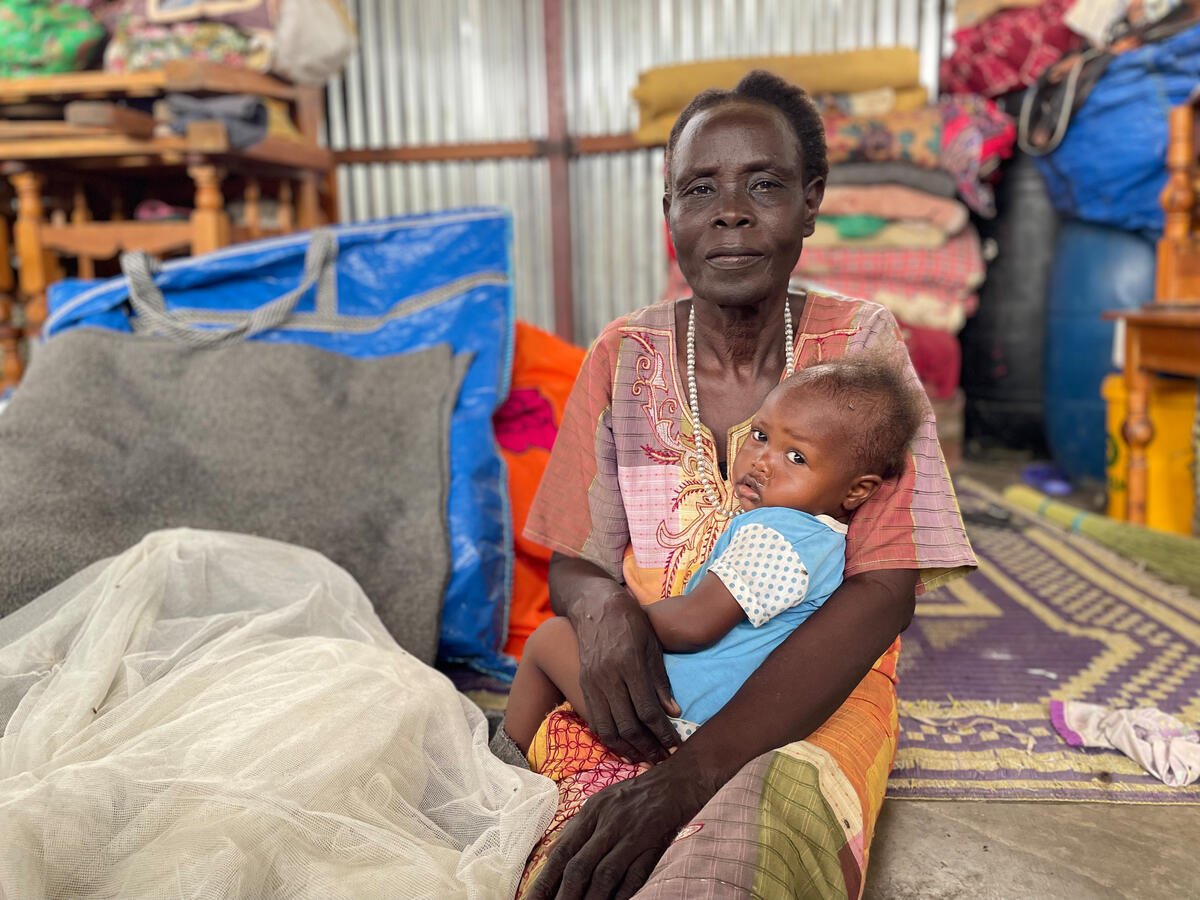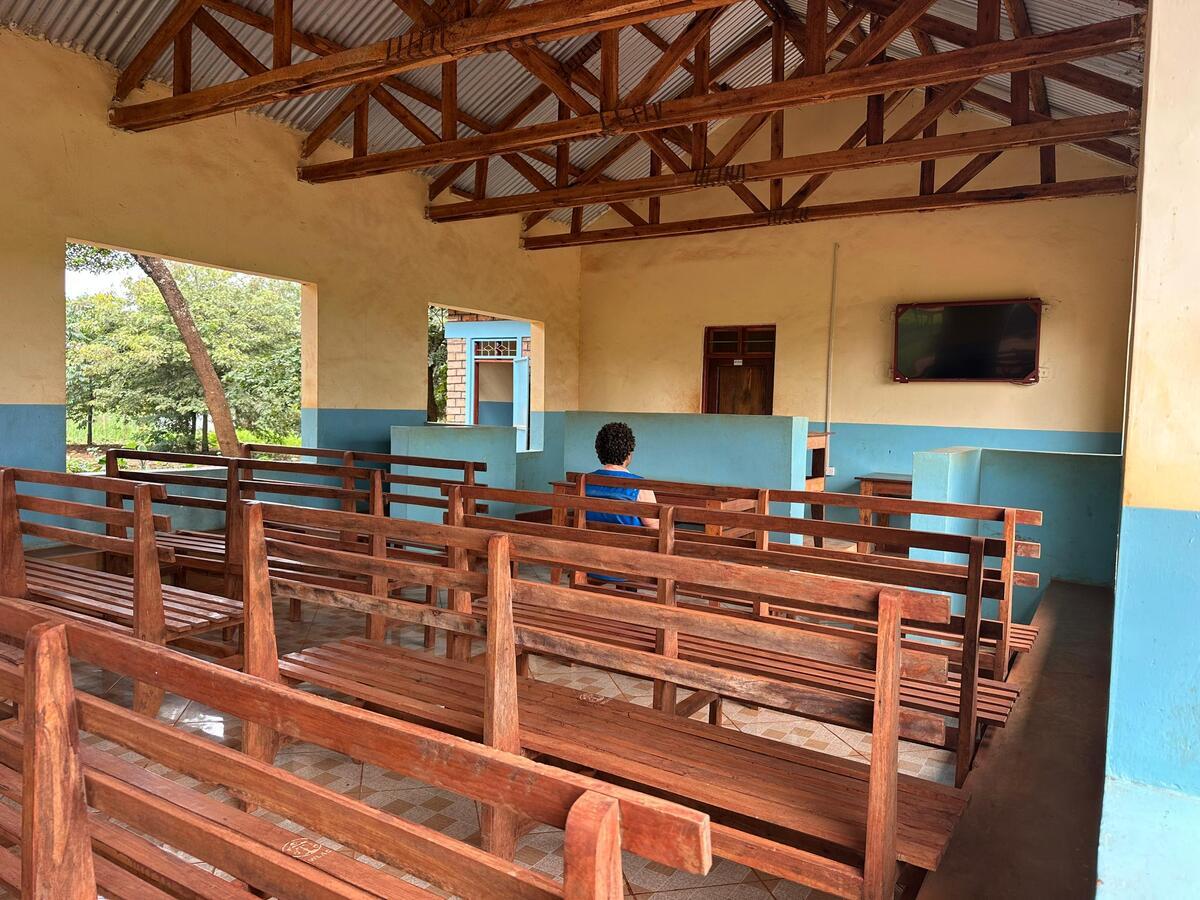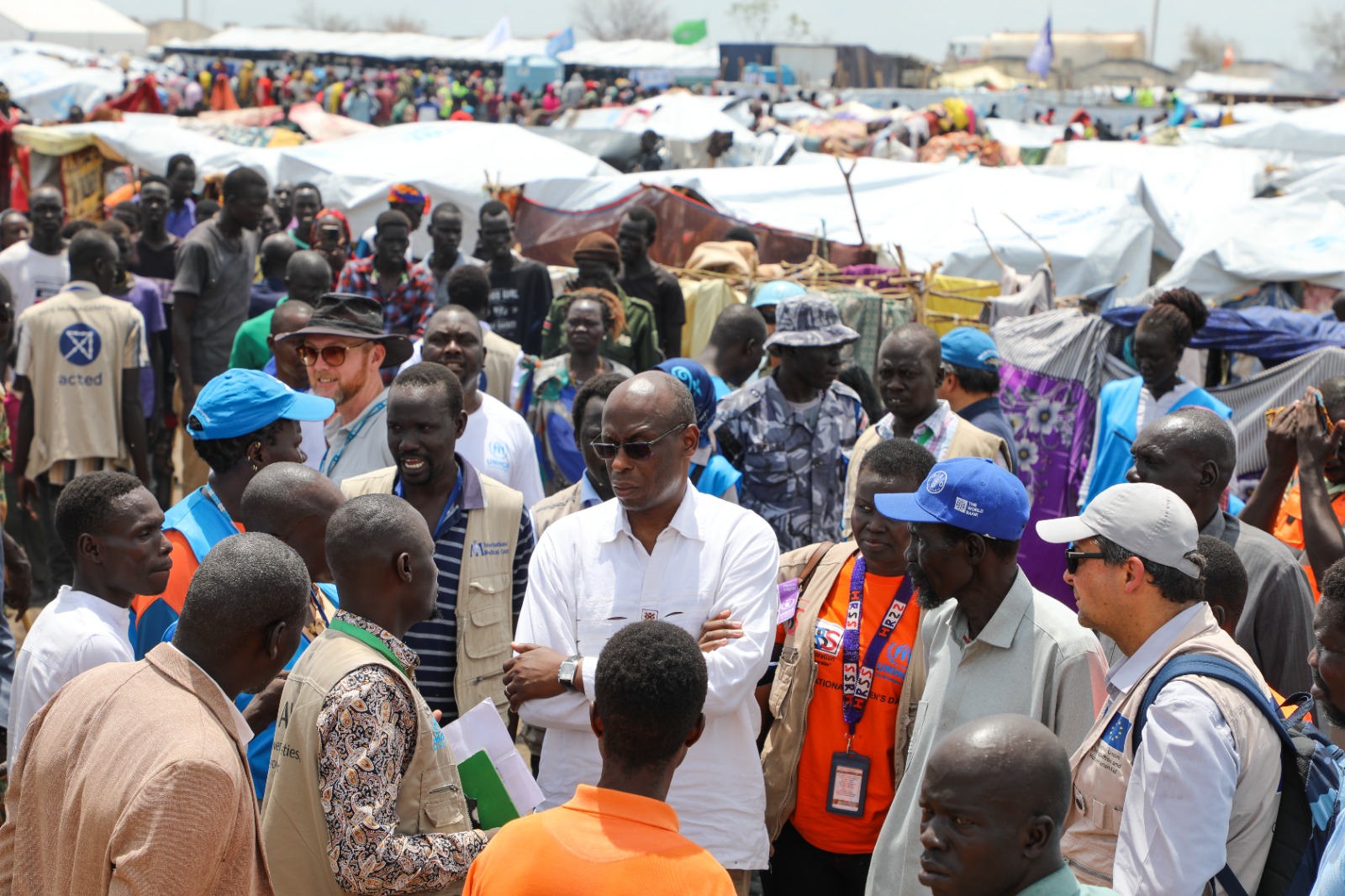UNHCR provides crucial assistance as thousands of people arrive in South Sudan fleeing conflict in Sudan
UNHCR provides crucial assistance as thousands of people arrive in South Sudan fleeing conflict in Sudan

Teresa holds one of her six grandchildren at the transit centre in Renk, South Sudan, as she awaits to be relocated to Melut county where her husband's family originates.
Ten years ago, 60-year-old Teresa was forced to flee deadly conflict in her hometown in Malakal town, northeastern South Sudan. Her search for safety for her then three children and husband led her to Sudan’s capital, Khartoum, where they settled.
“I never imagined that I would one day, have to leave my home, the place where I grew up, so as to save my life and my family,” said Teresa. “But we felt safe in Sudan and decided to stay and rebuild our lives,” she added.
With her children in school and her husband having found a job in the city, life seemed to be going back to normal. But when fighting broke out in Khartoum in April 2023, Teresa found herself, her six children and six grandchildren on the move yet again – this time back to the country she had fled over a decade earlier. It would take them almost a year to finally leave Khartoum and seek safety in neighboring South Sudan.
“When the fighting started in Khartoum, we tried to stay as long as possible because we thought it wouldn’t last for long,” she said. “This had become our home and now we had to leave again. We were all sad to leave everything, but we had no choice,” said Teresa.
After a week-long journey, they crossed into South Sudan through the Joda crossing point and made their way to the Renk transit center—where she has been staying since February—joining thousands more people who have recently arrived while waiting for onward transportation to areas of return or refugee camps across South Sudan. Here, UNHCR, the UN Refugee Agency, provided them with relief items such as sleeping mats, jerry cans, soap, and mosquito nets to help them settle in.
Already in its second year, the conflict in Sudan has forced over 840,000 people to flee their homes and seek refuge in South Sudan. Renk has become a vital transit area for both refugees as well as returning South Sudanese refugees like Teresa and her family. New arrivals are hosted in two transit centers in Renk, where they receive immediate assistance and protection services. Due to the growing numbers of arrivals and as needs continue to grow, aid resources continue to be severely stretched.
However, with generous support of the King Salman Humanitarian Aid and Relief Center, UNHCR and partners have been able to provide essential household, hygiene and shelter items to people affected by conflict in Renk.
“Many families, like Teresa's, have endured the trauma of displacement not once, but twice —first seeking refuge from conflict in South Sudan, only to be forced back to safety here after conflict erupted in Sudan,” says Silva Alkebeh, UNHCR’s Senior Field Coordinator. “With more than 840,000 people now seeking refuge in South Sudan, humanitarian resources are being stretched to meet critical needs. Ongoing donor support is essential to provide lifesaving assistance and help these resilient individuals rebuild once more in the place they had left behind.”
Teresa plans to rebuild her life in Melut County, where her husband’s family currently lives. UNHCR, the International Organization for Migration, together with other partners, continue to relocate refugees from the Renk transit center to refugee settlements across South Sudan. Meanwhile, an increasing number of newly arrived refugees are also opting to settle in urban areas.
In addition to meeting people’s immediate needs including water, shelter, and medical care, we are also advocating for long-term solutions for refugees and asylum seekers, including access to identity documentation, livelihood opportunities and inclusion into national systems such as health and education.
While funding for South Sudan remains generous, resources to meet people’s needs fully are still significantly low. As of October 2024, UNHCR activities in the country were only 47 per cent funded. Stronger donor support is crucial to ensure that families like Teresa’s can continue to access the help they need.









